I enjoy reading the life stories of leaders and asking, “God, what would You have me take away from this person's story?” I recently read books on the life stories of Elon Musk and Einstein (both written by Walter Isaacson), and Trump (written by Trump).
My takeaway reflections
- The books contained what I love and trust most, which is many words spoken directly by the chief characters themselves, as opposed to some interpreter summarizing their views and feeding them to me as second-hand information (which I essentially don't trust).
- All three men lived and created outside the box. Many years ago, the Lord told me to lay down my theological box as my security blanket. He said I was to find my security through 1) His voice in my heart and 2) my submission to my three spiritual advisors and NOT my boxed theology. So I did lay down the theology I had formed with my own reasoning powers and now only have three simple beliefs that I cling to. They are all listed in The Apostles' Creed (i.e. roles of the Father, the Son, and the Holy Spirit).
- All three men had passions and gifts from God that equipped them for their fields of endeavor.
- Trump: Big ideas, big projects, big money, big deal-making, and ability to negotiate with people.
- Musk: Big ideas, big projects, big money, and ability to create using technology.
- Einstein: Big ideas, big projects, big ramifications, and worked with a few close friends.
- All three sacrificed greatly for the vision and call upon their lives. They all have many mockers and attackers. The same was true for Jesus and all of us. Jesus knew His purpose was that He was to die for the sins of the world. His mockers heaped scorn on Jesus. Jesus has told me what I am to die for (restoring the eyes and ears of the Church to Him). He will tell you what you are to give your life for. Just ignore the mockers and scorners, as they bite and devour everyone and will come to destruction.
- All three men saw obstacles as opportunities for creative solutions to arise. In other words, they lived in an attitude of optimism. Well, everyone who is doing two-way journaling will find God constantly guiding them to look on the positive and to rejoice without ceasing and in everything to give thanks (1 Thess. 5:16-19).
- All three have moral issues so are not perfect role models. From a look at the lives of leaders in Scripture and the lives of those around me, I would agree that the quest for moral purity is an ongoing battle, probably for just about everyone.
- Stay focused on your goal. Don’t stop to kick every dog that barks at you. If you do, you will never reach your goal. At the end of Einstein's life, he was approached about becoming the Prime Minister of the nation of Israel. He turned it down as he knew it was outside his gift mix. He thrived on working alone or with a small group of close friends.
I enjoyed Einstein the most as he worked in the same field God has called me to work in - the field of ideas.
- Einstein received revelation in the same way I do – through stillness, reflection, picturing, and a burst of insight, followed by backing it up with analytical formulas. He said, “I want to know God’s thoughts, the rest are details.” (More about Einstein's experiences below.)
- Einstein sought to discover the “unified field theory” (that is, the unifying principle that brings everything together). Einstein died without accomplishing this, although E = MC2 was a huge step in this direction.
- In my search for underlying unifying principles, God has revealed to me the following: 1) we are to live out of divine initiative, just as Jesus did, and 2) God can do anything He pleases (Ps. 125:6). These two cover life fairly well!
“The Miracle” Einstein observed, which he considered a "religious belief” and the reason he rejected atheism
“The eternal mystery of the world is its comprehensibility… The fact that it is comprehensible is a miracle… It would be logical to assume that the opposite was the case. One should expect a chaotic world which cannot be grasped by the mind in any way,” he wrote. “There lies the weakness of positivists and professional atheists.” Einstein was neither. To Einstein, this belief in the existence of an underlying reality had a religious aura to it. Einstein said, “I have no better expression than ‘religious’ for this confidence in the rational nature of reality and in its being accessible, to some degree, to human reason. When this feeling is missing, science degenerates into mindless empiricism.”
Einstein was able to feel awe that there are rules ordering our perceptions, rather than pure randomness. Reverence for this astonishing and unexpected comprehensibility of the universe was the foundation for his realism as well as the defining character of what he called his religious faith.
Isaacson, Walter. Einstein: His Life and Universe (pp. 462-468). Simon & Schuster. Kindle Edition.
Einstein and revelation, creativity, and freedom
“When excited discussion failed to break the deadlock, Einstein would quietly say in his quaint English, ‘I will a little tink.’” The room would become silent, and Einstein would pace slowly up and down or walk around in circles, twirling a lock of his hair around his forefinger. “There was a dreamy, far-away, yet inward look on his face. No sign of stress. No outward indication of intense concentration.” After a few minutes, he would suddenly return to the world, “a smile on his face and an answer to the problem on his lips.”
“It is open to every man to choose the direction of his striving,” he explained, “and every man may take comfort from the fine saying that the search for truth is more precious than its possession.”
One day during the 1930s, Einstein invited Saint-John Perse to Princeton to find out how the poet worked. “How does the idea of a poem come?” Einstein asked. The poet spoke of the role played by intuition and imagination. “It’s the same for a man of science,” Einstein responded with delight. “It is a sudden illumination, almost a rapture. Later, to be sure, intelligence analyzes, and experiments confirm or invalidate the intuition. But initially there is a great forward leap of the imagination.”
Einstein’s fundamental creed was that freedom was the lifeblood of creativity. “The development of science and of the creative activities of the spirit,” he said, “requires a freedom that consists in the independence of thought from the restrictions of authoritarian and social prejudice.” Nurturing that should be the fundamental role of government, he felt, and the mission of education.
“A spirit is manifest in the laws of the universe—a spirit vastly superior to that of man, and one in the face of which, we, with our modest powers must feel humble,” he wrote. “In this way the pursuit of science leads to a religious feeling of a special sort.” For some people, miracles serve as evidence of God’s existence. For Einstein it was the absence of miracles that reflected divine providence. The fact that the cosmos is comprehensible, that it follows laws, is worthy of awe. This is the defining quality of a “God who reveals himself in the harmony of all that exists.” Einstein considered this feeling of reverence, this cosmic religion, to be the wellspring of all true art and science. It was what guided him. “When I am judging a theory,” he said, “I ask myself whether, if I were God, I would have arranged the world in such a way.” It is also what graced him with his beautiful mix of confidence and awe.
Isaacson, Walter. Einstein: His Life and Universe (p. 549-552). Simon & Schuster. Kindle Edition.
Key principles from Trump's book
Takeaways from The Art of the Deal are: think big, know your market, maximize options, use leverage, promote relentlessly, fight when needed, control costs, have fun, trust instincts, and protect the downside—offer a blueprint for bold, strategic action. They’re rooted in Trump’s real estate experience, but apply to any high-stakes endeavor.
Elon’s accomplishments
He will sleep in his factories as he works to resolve issues. His passion is to move humanity forward, to occupy Mars, so if an atomic war destroys Earth, humanity can continue on. He works hard and fast, re-invests his wealth back into new businesses which serve humanity. He needs inner healing and deliverance from childhood traumas. Someone in the Church, please offer this to him.
Journaling question
Review of four keys to hearing God's voice: stillness, vision, flow, and journaling (CWGministries.org/4keys)
Lord, what would You have me understand from the principles and traits of these men’s lives? Do You desire that I grow in any of the traits or principles that they manifested?
Dig deeper for MORE fun and inspiration
- Online Search: "Trump’s accomplishments”
- Online Search: “Elon’s accomplishments”
- Online Search: “Einstein's accomplishments” and "Einstein's quotes"
- Online Search: "Thomas Edison's accomplishments" and "Thomas Edison quotes"
- You may feel led to read a book by a leader whose accomplishments closely match your aspirations, your gifts and your life’s call (eg, Edison, or some church leader such as Luther, Calvin, Wesley, Wigglesworth, etc.)
Related Resources:
How to Hear God's Voice!

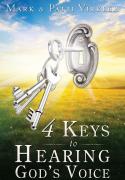
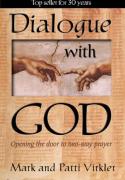




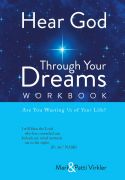
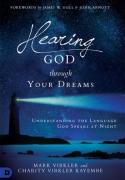

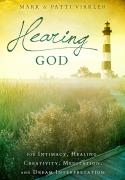
Add new comment